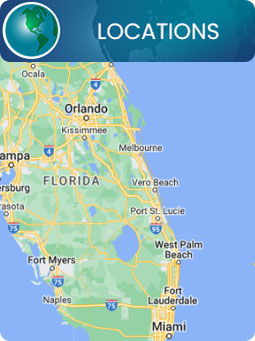Minimally Invasive Discectomy Specialist Q&A
A minimally invasive discectomy is a type of surgery designed to treat herniated discs. A minimally invasive discectomy decreases discomfort, increases mobility, and allows for a faster recovery with less suffering, allowing you to reclaim your quality of life. Trust our skilled surgeons at Global Neuro & Spine Institute for advanced spinal treatment. For more information, contact us or schedule an appointment online. We have convenient locations in Orlando FL, Jensen Beach FL, Malabar Palm Bay FL, Atlantis FL, Fort Pierce FL, Winter Park FL and Plantation, FL.


Table of Contents:
What is a minimally invasive discectomy?
How long does a minimally invasive lumbar discectomy take?
What is the success rate of a minimally invasive discectomy?
Why should someone get a minimally invasive discectomy?
Minimally invasive discectomies are a great option for those who need to undergo some sort of surgical procedure in order to experience pain relief in their lower back that is due to increased pressure. It is a very safe option when compared to traditional open spinal surgeries as it incurs no damage to the surrounding tissues, only requires a small incision that can easily be bandaged up, does not require patients to be put under or spend the night in the hospital, and allows for an incredibly fast recovery time. No one should have to choose between living with incredible back pain that radiates down their legs or hinders them from living comfortably and undergoing an invasive surgery, making minimally invasive discectomies the safest and most often best option.
A minimally invasive discectomy is a procedure that uses small incisions to part of a damaged spinal disc that sits in between the vertebrae to help ease pressure that may be felt within the spine, often leading patients to experience significant pain. This procedure can be done either using a laser or a small tube that has been inserted in order to remove the part of the disc and may be recommended as a course of treatment in those who are experiencing painful symptoms caused by a herniated disc. Not everyone who suffers from a herniated disc will require a minimally invasive discectomy, but it is commonly recommended by physicians to their patients who have tried alternate treatments that have provided no relief for their symptoms.
Most minimally invasive lumbar discectomy procedures will take around one hour to complete and is usually an outpatient procedure that only uses local anesthetic, but some patients can opt to be put under for the procedure if they are more comfortable with that option. The surgeon will likely want to keep the patient at site of the procedure for a couple of hours following the discectomy to ensure that the anesthetic wears off and that there are no immediate adverse reactions, but will be allowed to be driven home after that. The total recovery time will likely take closer to 1 to 4 weeks, with many patients being able to return to work and normal household activities after 1 week. It may also be required that patients do physical therapy following the procedure (once it is safe to do so) to ensure that they have full strength and mobility of their back and to prevent further injury from occurring.
The success rate of a minimally invasive lumbar discectomy is around 90%, but is still a highly preferred method over its more invasive spinal surgical options that come with a 95% success rate due to the limited risks and necessary recovery time associated, as well as far less trauma that is caused to the surrounding soft tissues and muscles. It is common to experience some increased pain while still recovering from the procedure, but the end result will be significantly less pain and better mobility that before, often resulting in a significantly improved quality of life. Some factors that may influence the success of the procedure include the severity of the condition, how much damage has been done to the disc, and the age and overall health of the patient. The location of the herniated or damaged spinal disc can also influence whether a minimally invasive or open discectomy procedure would be better suited to treat the back pain.
Minimally invasive discectomies are recommended for patients who suffer from a damaged or herniated disc in their spine that has led to severe back pain and has found no relief in previously attempted but more conservative treatments such as medications and physical therapy. It is also a good option for those who meet the previous criteria but do not wish to undergo a more invasive surgical procedure such as an open spinal surgery due to the increased risks and necessary recovery time. Some other conditions that would be effectively treated with a minimally invasive discectomy include:
– Spinal instability
– Bone spurs
– Scoliosis
– Spinal tumors
– Degenerative discs in the lower spine
– Herniated discs in the lower spine
– Pinched nerves
Global Neuro & Spine Institute provides minimally invasive lumbar discectomy to alleviate nerve root compression. For more information, contact us or schedule an appointment online. We serve patients from Orlando FL, Conway FL, Edgewood FL, Jensen Beach FL, Ocean Breeze FL, Rio FL, Malabar Palm Bay FL, Melbourne FL, Atlantis FL, Palm Springs FL, Boynton Beach FL, Fort Pierce FL, White City FL, St Lucie FL, Plantation FL, Pine Island Ridge FL, Lauderhill FL, Winter Park FL, Bertha FL, Alafaya FL and surrounding areas.

CONDITIONS WE TREATED:
- Facet Joint Disorders
- Back Surgery Complications
- Migraines
- Herniated Discs
- Back Pain
- Lower Back Pain
- Neck Pain
- Sciatica Pain
- Abdominal Pain
- Compression Fractures
- Joint Pain Treatments
- Shoulder Pain Treatments
- Elbow Pain Treatments
- Hip Pain Treatments
- Knee Pain Treatments
- Diabetic Peripheral Neuropathy
- Complex Regional Pain Syndrome
- Pelvic Pain
- Occipital Neuralgia
- Chest Wall Pain
- Chronic Facial Pain
- Phantom Limb Pain
- Interstitial Cystitis – Pelvic Pain
- Herpetic Neuralgia
- Cervical Radiculopathy
- Degenerative Disc Disease
ADDITIONAL SERVICES
- Kyphoplasty
- Epidural Steroid Injection
- Posterior Facet Blocks – Rhizotomy
- Sacroiliac Joint Injection
- Percutaneous Discectomy
- Stellate Ganglion Blocks
- Intercostal Nerve Blocks
- Intra-Articular Peripheral Joint Injection
- Lumbar Epidural Steroid Injections
- Coccygeal Nerve Block
- Occipital Nerve Blocks / Rhizotomy
- Selective Nerve Root Blocks
- Discography
- Hardware Blocks
- Cluneal Nerve Block
- Spinal Cord Stimulators
- Sympathetic Nerve Blocks
- Headaches Treatments

CONDITIONS WE TREATED:
- Facet Joint Disorders
- Back Surgery Complications
- Migraines
- Herniated Discs
- Back Pain
- Lower Back Pain
- Neck Pain
- Sciatica Pain
- Abdominal Pain
- Compression Fractures
- Joint Pain Treatments
- Shoulder Pain Treatments
- Elbow Pain Treatments
- Hip Pain Treatments
- Knee Pain Treatments
- Diabetic Peripheral Neuropathy
- Complex Regional Pain Syndrome
- Pelvic Pain
- Occipital Neuralgia
- Chest Wall Pain
- Chronic Facial Pain
- Phantom Limb Pain
- Interstitial Cystitis – Pelvic Pain
- Herpetic Neuralgia
- Cervical Radiculopathy
- Degenerative Disc Disease
ADDITIONAL SERVICES
- Kyphoplasty
- Epidural Steroid Injection
- Posterior Facet Blocks – Rhizotomy
- Sacroiliac Joint Injection
- Percutaneous Discectomy
- Stellate Ganglion Blocks
- Intercostal Nerve Blocks
- Intra-Articular Peripheral Joint Injection
- Lumbar Epidural Steroid Injections
- Coccygeal Nerve Block
- Occipital Nerve Blocks / Rhizotomy
- Selective Nerve Root Blocks
- Discography
- Hardware Blocks
- Cluneal Nerve Block
- Spinal Cord Stimulators
- Sympathetic Nerve Blocks
- Headaches Treatments






